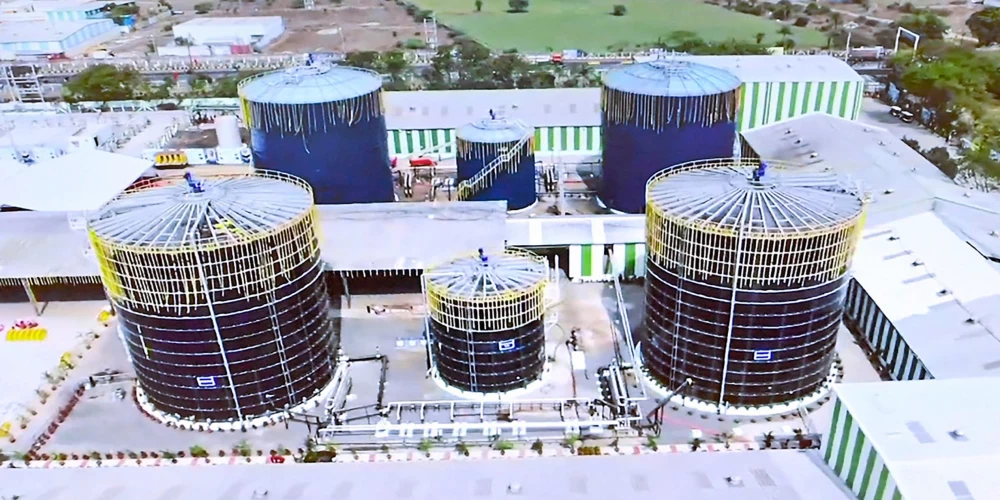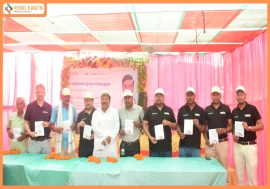
Indore: Indore’s GOBARdhan plant, Asia’s largest municipal solid waste-based facility, is leading a new approach to waste management by converting organic waste into Bio-CNG. Producing 17,000 kilograms of Bio-CNG daily, the plant has become a model for clean energy production and sustainability. Inaugurated by Prime Minister Narendra Modi in 2022, the plant is part of the Galvanizing Organic Bio-Agro Resources Dhan (GOBARdhan) initiative, aimed at turning waste into wealth.
The GOBARdhan initiative, launched under the Swachh Bharat Mission (Grameen) in 2018, focuses on converting organic waste like animal manure, crop residue, and household scraps into renewable energy and organic manure. This aligns with the government's vision for a circular economy, where resources are continuously reused, reducing waste and environmental impact.
The Indore plant exemplifies this vision. Every day, organic waste is collected from homes and markets across the city, then processed at the plant. Using advanced technology, the waste is screened, pulped into slurry, and placed in anaerobic digesters, where microorganisms break it down to produce biogas. The biogas, rich in methane, is compressed into Bio-CNG, a cleaner and more sustainable alternative to fossil fuels.
Beyond producing Bio-CNG, the plant generates over 100 tonnes of high-quality compost each day. This compost is distributed to local farms, promoting sustainable agriculture by improving soil health and reducing the need for chemical fertilisers. The plant creates a closed-loop system that not only manages waste effectively but also supports the city’s green agenda.
One of the plant’s significant environmental contributions is its role in reducing greenhouse gas emissions. By converting organic waste into energy, it prevents around 130,000 tonnes of carbon dioxide from being released into the atmosphere each year. This not only helps reduce Indore's reliance on landfills but also supports India's efforts to combat climate change.
The facility is equipped with fully automated systems to ensure efficient operations. Workers, including technicians, operators, and quality control teams, are trained and provided with protective equipment to maintain safety standards while handling complex machinery. Their efforts enable the plant to maintain high production levels while adhering to environmental and safety regulations.
The success of Indore’s GOBARdhan plant demonstrates the potential of such initiatives across India. The GOBARdhan programme has already registered over 1,300 biogas plants nationwide, with 870 currently operational. These plants help alleviate the burden on landfills, generate clean energy, and provide farmers with an additional source of income, either by selling waste for processing or using bio-slurry as fertiliser.
Moreover, the programme is driving the development of compressed biogas (CBG) and Bio-CNG plants, with 743 registered and 106 already functional. These plants are crucial to India’s clean energy infrastructure, contributing to the country’s goal of reducing reliance on imported natural gas. The use of Bio-CNG as a fuel for vehicles is an essential part of India's shift towards sustainable transportation.
The GOBARdhan initiative also plays a vital role in India's climate strategy, helping meet commitments under the Paris Agreement by reducing greenhouse gas emissions. By converting waste into renewable energy, it not only supports local economies but also promotes environmental sanitation in rural areas.
With more plants under development and substantial government support, including a Rs 10,000 crore allocation for 500 new “Waste to Wealth” plants in the 2023 Union Budget, the GOBARdhan initiative is set to further bolster India's clean energy sector. The Indore GOBARdhan plant is a reflection of what can be achieved through innovation, community effort, and government backing, paving the way for a greener, more sustainable future. /BI












